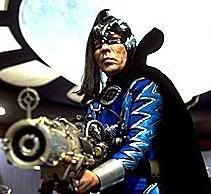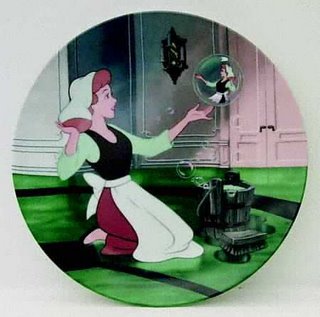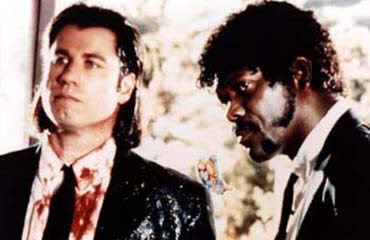Riddles of the Sphinx
 | Last sunday I watched an excellent movie, Mystery Men, with my family. Mystery Men is about a group of superheros who simply do not measure up to the public's view of what a superhero should be. Instead of a lot of action and special effects we are shown characters who are simply trying to relate to themselves and each other. |
The film was refreshing for several reasons, particularly because of Mr. Furious' (Ben Stiller) relationship with a waitress (Claire Forlani) - which had some solid things to say about what it means to love. The writing is absurd (bizarre at times) but often hilarious. In my opinion the acting is also superb.
My favorite part of the movie is the character of "The Sphinx". When one of the mystery men ask what his superpower is, he is told, 'He's very mysterious ... and he can break guns in half with his mind ... I think ...".
The focus of the story really is on a few people with good intentions who have become outsiders. And the Sphinx is the most outlying character of them all.
It turns out the Sphinx really has the power to break guns in half with his mind, but this is not his true ability. His real super power is that he can break (in a sense) the minds of his oponents in half.
Ordinarily super heros tend to focus on their abilties, but the Sphinx overlooks the art for the beholder of the art. In doing so he turns logic upside down in a way which is somehow more true than the other world. Here is a small list of his aphorisms during the movie:
You are not ready to face so great an enemy. Not until you have vanquished the enemy within yourselves.
The wise man knows that he is weakest when he thinks himself strong.
He who questions training only trains himself at asking questions.
When you doubt your powers, you give power to your doubts.
Patience, my son. To summon your power for the conflict
to come, you must first have power over that which conflicts you.
A perspective like this (and not the batmobile or a beatiful super villainess) is what contours the greatness of the best super hero mythologies such as Batman.
In stories like these we are taken away to an exciting adventuresome place and then placed back into our own lives without us becoming aware of it.
The obstacles I face at my job (for example) often appear impossible to deal with. I look at them and say, "I'll never be able to conquer this!" But the victorious worker is the one who looks inside at his choices and sees that if he can only obtain that single power of self-control he will prevail.
And I find the true hero (as the characters found in Mystery Men) is not the one with the greatest appearance but the one who has learned to confront his doubts, his indulgences, his every inclination to do what the circumstances tell him to do, and is not carried away by them.
Labels: Movies
Read More ...



